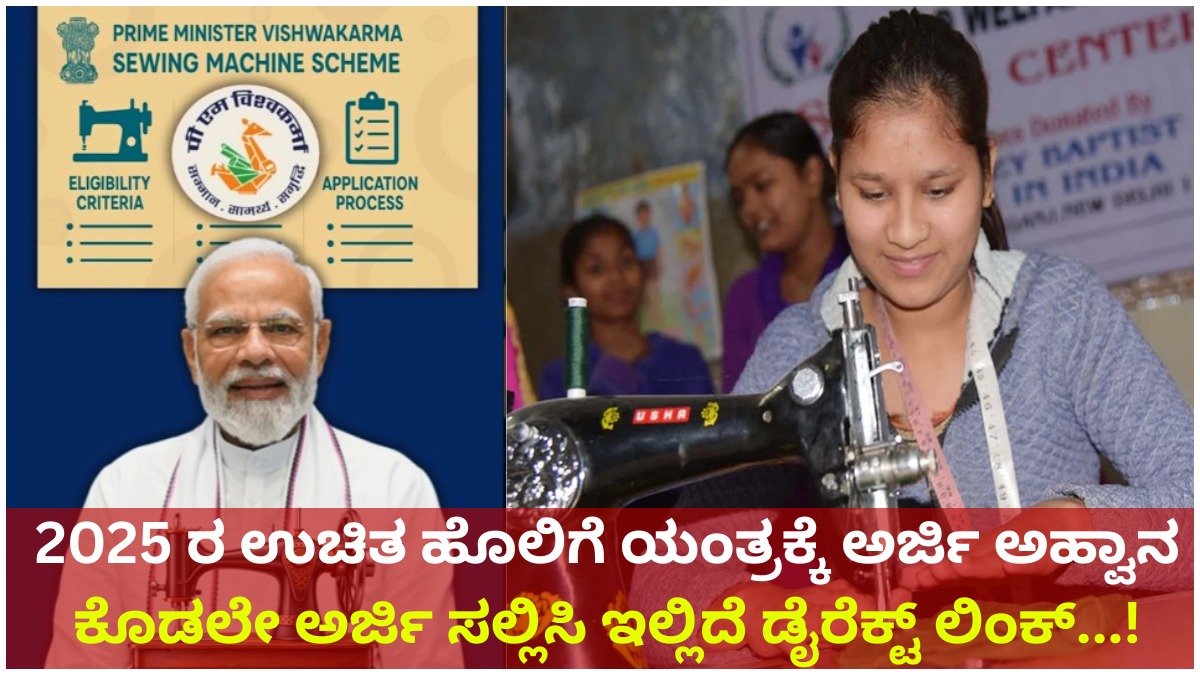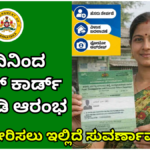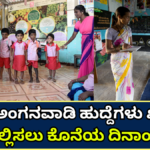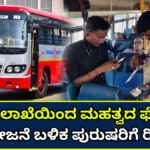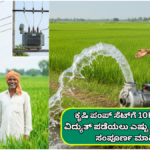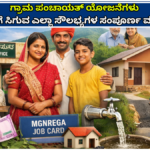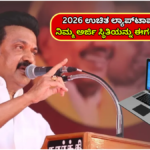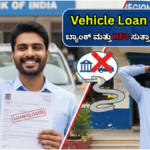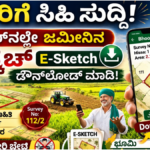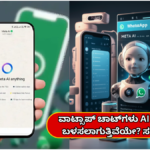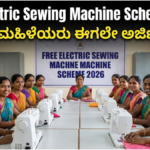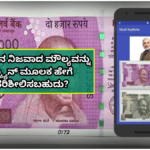In a significant move to promote self-reliance and skill-based employment among women, the Karnataka Government has introduced the *Free Sewing Machine Scheme 2025. Implemented by the *D. Devaraj Urs Backward Classes Development Corporation (DBCDC), this initiative is designed to uplift rural women—especially those belonging to marginalized communities—by offering them free sewing machines and tailoring toolkits.
Tailored for unemployed, widowed, and economically weaker women from Scheduled Castes (SC), Scheduled Tribes (ST), and Other Backward Classes (OBC), this scheme is more than just a welfare program—it’s a path toward *financial independence, **entrepreneurship, and *dignity.
1. Purpose of the Scheme
Karnataka’s rural landscape is dotted with talented women who possess tailoring skills but lack access to basic tools like sewing machines. By providing these women with free machines and toolkits, the state government aims to:
- Support women in starting home-based tailoring units
- Create employment at the village level
- Reduce dependency on family income
- Encourage micro-enterprises and self-employment
- Revive and support traditional artisan occupations
This initiative directly aligns with the government’s broader goal of promoting Atmanirbhar Bharat (Self-Reliant India) at the grassroots level.
2. Background: Why This Scheme Matters
Despite various empowerment programs, a large section of rural Karnataka’s female population still struggles to secure a stable income. Many women—especially widows, divorcees, and those from BPL (Below Poverty Line) families—are skilled in tailoring but cannot afford the tools required to monetize their skills.
This scheme addresses that gap by distributing sewing machines worth ₹9,000–₹12,000 free of cost to eligible women. It not only helps in generating income but also boosts their confidence and social standing.
3. Key Administrative Bodies Involved
The scheme is managed and monitored through a coordinated effort involving multiple state and local bodies:
- D. Devaraj Urs Backward Classes Development Corporation (DBCDC)
- Department of Social Welfare, Karnataka
- District Zilla Panchayats
- District Industries Centres (DIC)
- Seva Sindhu Portal (Digital Governance Platform)
These departments ensure smooth application, verification, distribution, and follow-up services.
4. Major Objectives of the Scheme
Here’s a breakdown of the scheme’s primary goals:
- Provide free sewing machines to underprivileged rural women
- Enable trained tailors without equipment to become self-employed
- Support widows and physically disabled women to earn independently
- Encourage working from home to maintain a work-life balance
- Offer toolkits to traditional rural artisans (such as cobblers and potters)
5. Who Can Apply: Target Beneficiaries
The scheme is tailored for:
- Rural women between 18 and 55 years of age
- Belonging to SC/ST and OBC (Category 1, 2A, 3A, 3B)
- Economically weaker women with annual family income:
- Below ₹98,000 (rural areas)
- Below ₹1,20,000 (urban areas; however, urban residents cannot apply for this scheme)
- Unemployed or underemployed women
- Widows, divorcees, or separated women
- Physically challenged female applicants
- Artisans such as washermen, potters, cobblers, and barbers
- Trained tailors lacking their own machines
6. Eligibility Criteria
To be considered eligible, the applicant must:
- Be a permanent resident of Karnataka
- Belong to an eligible caste category (SC/ST/OBC – 1, 2A, 3A, 3B)
- Reside in a rural area
- Be aged between 18 and 55 years
- Have income below the prescribed limits
- Possess basic tailoring skills (formal training adds preference)
- Not be currently employed by the government or related to a government employee
- Not have received a free machine through any similar scheme in the past three years
7. Documents Needed for Application
Applicants are required to upload or submit the following documents (PDF or JPEG formats):
- Aadhaar Card
- Caste Certificate
- Income Certificate (current financial year)
- Domicile Certificate or Ration Card (as proof of residence)
- SSLC mark sheet or transfer certificate (for age proof)
- Tailoring Training Certificate (if applicable)
- Disability Certificate (if applicable)
- Widow Certificate (if applicable)
- Passport-size photograph
- Bank passbook copy (with IFSC and account number)
- Artisan ID card (if applying under the tool kit scheme)
8. Benefits Offered Under the Scheme
- Free sewing machine valued at ₹9,000 to ₹12,000
- No repayment or deposit required
- Start your own business from home
- Additional government training programs available
- Tool Kit Scheme for artisans includes:
- Scissors
- Threads and measuring tapes
- Iron box
- Profession-specific tools for potters, cobblers, washermen, and more
9. Artisan Tool Kit Scheme: A Parallel Initiative
The Karnataka government also provides free toolkits to support rural artisans, including:
- Washermen (dhobis)
- Cobblers
- Potters
- Barbers
- Carpenters
- Blacksmiths
These kits contain tools specific to their trades to help them maintain or improve their livelihood.
10. District-Wise Notification and Application Dates
Each district in Karnataka sets its own application timeline. Here are some examples:
| District | Application Window |
|---|---|
| Yadgir | 01 Jul 2025 – 31 Jul 2025 |
| Hassan | 07 Jul 2025 – 31 Aug 2025 |
| Tumakuru | Closed in April 2025 |
| Mandya | Feb 2025 – Mar 2025 |
| Kolar | May 2025 – Jun 2025 |
| Mysuru | March 2025 |
Applicants must check the Zilla Panchayat websites or district-level offices for the latest notifications.
11. How to Apply Online
The online application process is simple and accessible through Karnataka’s digital service portal.
Step-by-Step Guide:
- Visit Seva Sindhu Portal
- Login using Aadhaar-linked credentials or register as a new user.
- Click on “DBCDC – Free Sewing Machine Scheme”.
- Fill out:
- Personal information
- Residential and category details
- Skill or training background
- Upload required documents.
- Submit the application and download your receipt.
12. Tracking Your Application
After submission, you can track the status through the Seva Sindhu portal:
- Go to the “Track Application Status” section.
- Enter your application number or mobile number.
- Updates like verification and approval will be displayed.
13. Role of Local Authorities
Once your application is submitted:
- The Panchayat Development Officer (PDO) may conduct a home visit.
- Your income and address details are verified.
- Some districts may ask for physical submission of certificates at Taluk offices or Panchayat centers.
14. Selection & Allotment Process
- The District Backward Classes Welfare Department prepares the final selection list.
- Priority is given to:
- Widows and single mothers
- Physically challenged women
- Trained tailors without access to equipment
- Only one woman per family is eligible.
- Selected candidates are notified via SMS or local gram panchayat notice boards.
15. Distribution of Sewing Machines
- Distribution takes place at district headquarters or taluk centers.
- Beneficiaries must carry:
- Aadhaar card
- Original documents submitted online
- Acknowledgement of receipt is required.
16. Monitoring and Impact Assessment
Each district regularly monitors:
- The number of beneficiaries
- Proper delivery and usage of machines
- Satisfaction levels among women beneficiaries
These updates are sent to DBCDC and the Department of Women and Child Welfare.
17. Common Mistakes to Avoid
Many applications get rejected due to:
- Blurred or invalid documents
- Incomplete caste/income proof
- Invalid or outdated certificates
- Wrong mobile numbers (no OTP or SMS received)
- Missed deadlines
- Duplicate benefit claims (within the last 3 years)
Tip: Double-check everything before final submission.
18. Real-Life Success Stories
- Suma from Kolar used her free sewing machine to launch a school uniform tailoring business.
- Fathima from Raichur, a widow, now earns her livelihood by stitching blouses and churidars.
- Lakshmi in Hassan trained others in her village after starting her own tailoring shop.
These stories highlight the power of a simple tool to transform lives.
19. Help and Support Centers
For guidance, visit your:
- Grama-One Centers
- Taluk Panchayat Office
- Zilla Panchayat Office
- District Backward Classes Welfare Office
You can also contact the *DBCDC Helpline: *080-22374836
20. Frequently Asked Questions (FAQs)
Q: Can urban residents apply for this scheme?
A: No, only rural women are eligible.
Q: Is tailoring certification compulsory?
A: Not mandatory, but it increases your chances.
Q: Can two women from the same family apply?
A: No, only one application per family is accepted.
Q: What happens if I miss the district’s deadline?
A: You can apply in the next cycle or explore similar schemes through DIC.
Q: Is there any payment required?
A: No, the machine is completely free.
21. Final Thoughts: A Stitch in Time Builds a Better Future
The Karnataka Free Sewing Machine Scheme 2025 is a well-thought-out initiative that addresses both livelihood generation and *social empowerment. By enabling women to earn from home or start small businesses, it contributes significantly to **rural development, **poverty reduction, and *gender equality.
